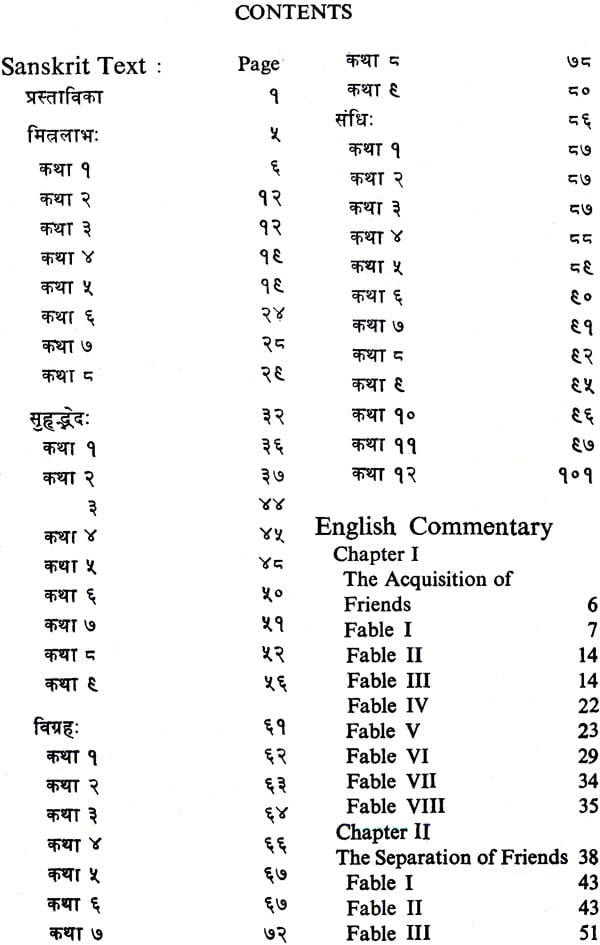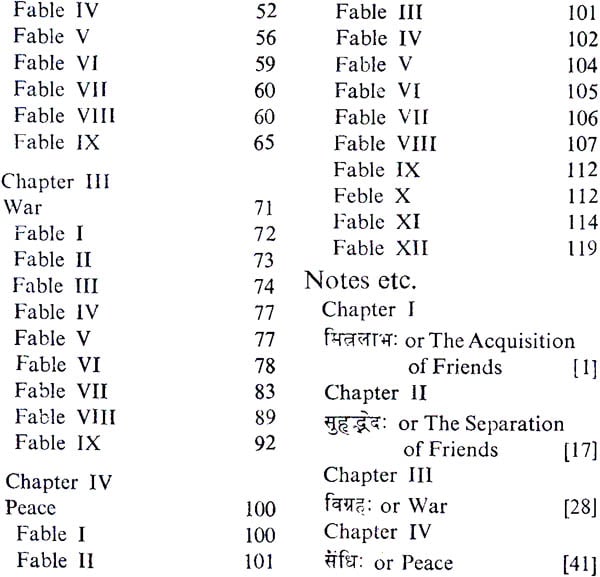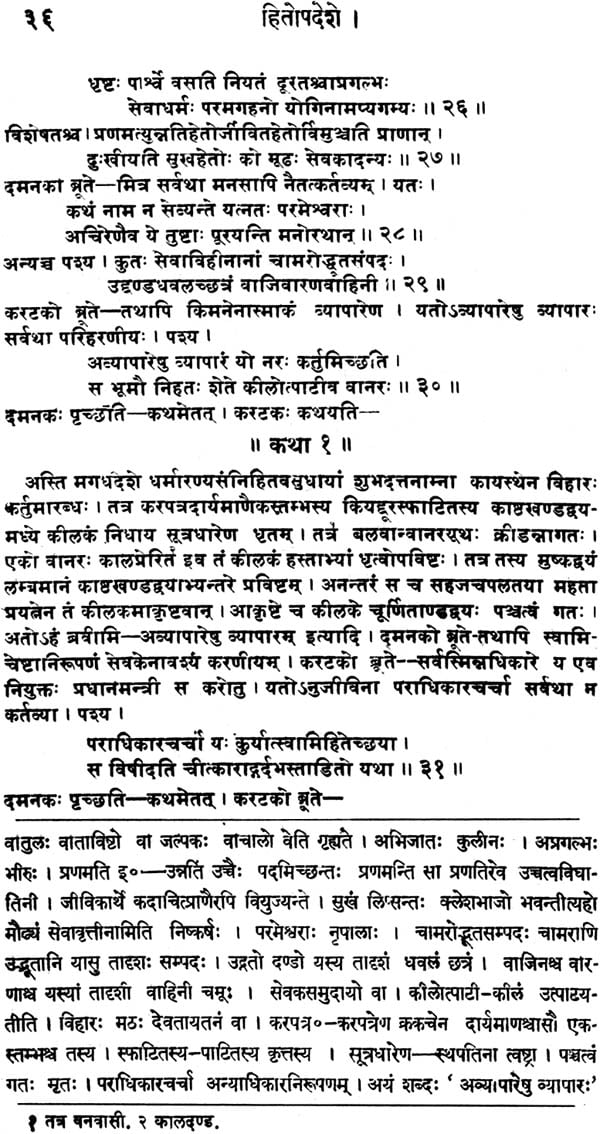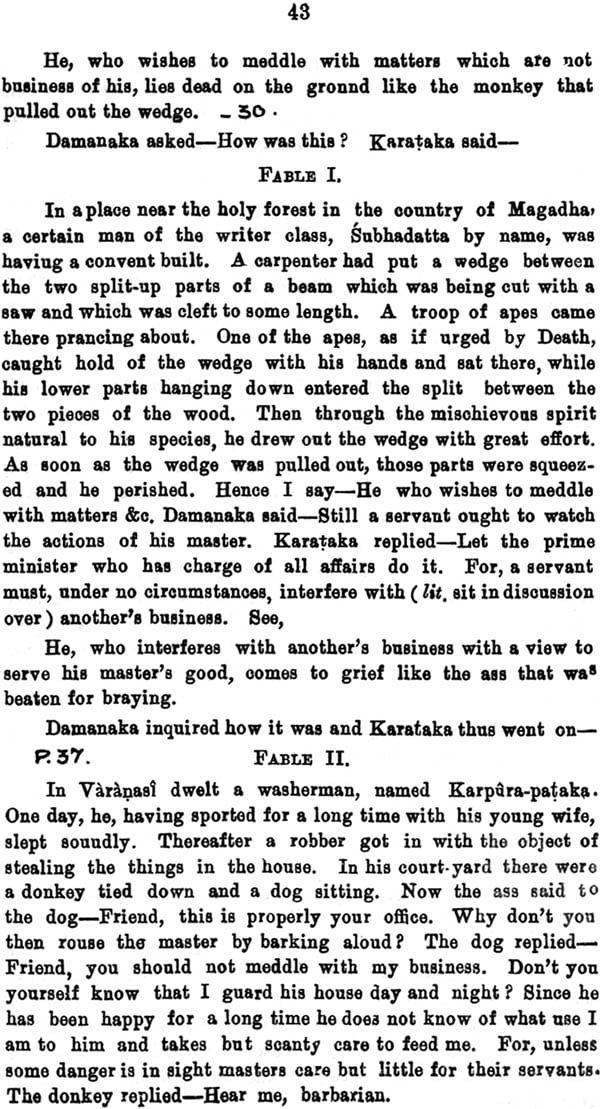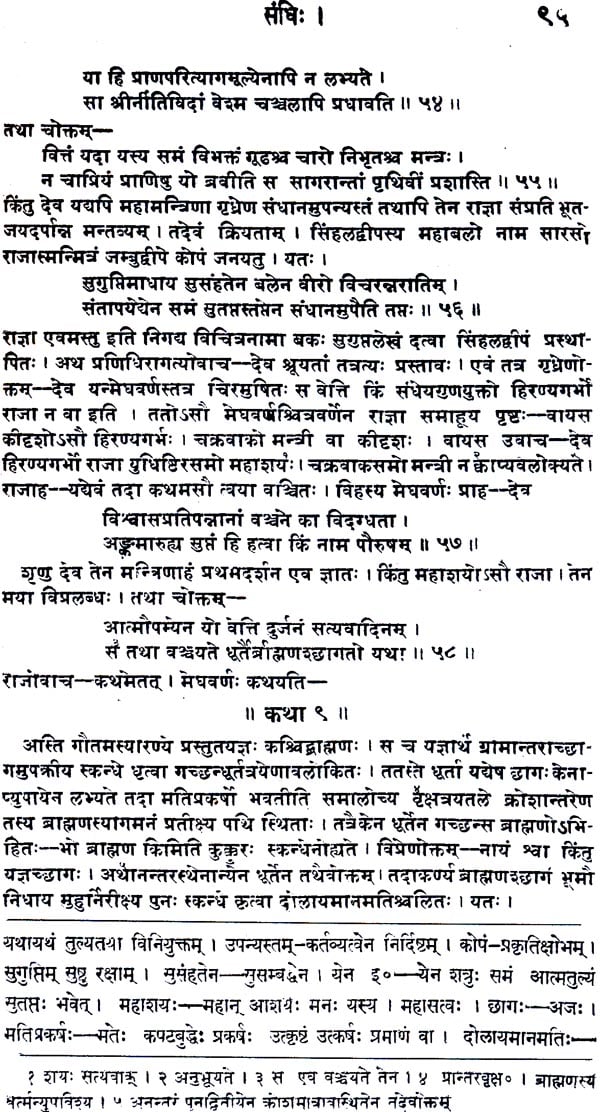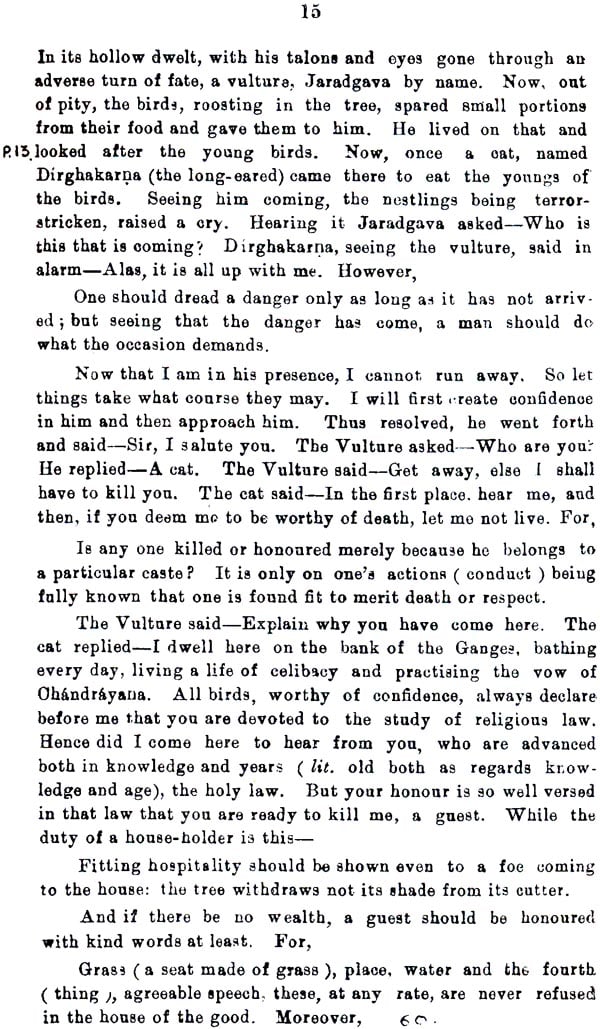
The Hitopadesa of Narayana (Edited with A Sanskrit Commentary "Marma-Prakasika" and Notes in English)
Book Specification
| Item Code: | IDJ451 |
| Author: | M R KALE |
| Publisher: | Motilal Banarsidass Publishers Pvt. Ltd. |
| Language: | English |
| Edition: | 2015 |
| ISBN: | 9788120806023 |
| Pages: | 283 |
| Cover: | Paperback |
| Other Details | 8.3" X 5.4" |
| Weight | 270 gm |
Book Description
The work aims at teaching the principles of polity guided by morality presenting them in the more agreeable form of stories written mostly in prose interspersed with verse. It belongs to that class of compositions which imparts instructions through fables inspired by the wisdom of its place and time. Yet every fable in this work and every maxim draw from it can still be applied to human characters irrespective of time and place.
The work is divided in four books: The book I describes how to win friends. The book II deals with the circumstances leading to the loss of friends. The book III relates to war and the book IV to conciliation. The object of the work is to train the young mind in the chief affairs of life by acquainting them with the accumulated experiences of past ages. The work is very interesting as well as instructive.
This edition contains the text, the Sanskrit commentary "Marma Prakasika", a full translation and notes in English. All difficult words and expression have been explained in easy Sanskrit and English. A few slokas have been interpreted in a new way and an attempt has been made to give a meaning to a few quotation from Kamandaka, hitherto given up by commentators as knotty.
India is now acknowledged to be the motherland of Fable Literature as she is of almost every other branch of knowledge. Sir William Jones writing as far back as in February 1786, thus expresses himself on the subject:-
"Their (the Hindoos') Niti-Sastra, or System of Ethics, is yet preserved, and the fables of Vishnu-Sarma, whom we ridiculously call Pilpay, are the most beautiful, if not the most ancient, collection of apologues in the world. They were first translated from the Sanskrit, in the sixth century, by Buzerchumihr, or "Bright as the Sun," the chief physician, and afterwards the Vizier of the great Anushirwan, and are extant under various names in more than twenty languages; but their original title is Hitopadesa, or "Amicable Instruction," and as the very existence of Aesop, who the Arabs believe to have been an Abyssinian, appears rather doubtful, I am not disinclined to suppose that the first moral fables which appeared in Europe were of Indian or Ethiopian origin." For a full account of the wanderings of the stories of Vishnusarman (the Panchatantra) into and through the different countries of Asia and Europe, the student is referred to C. Wilkins' preface to his translation of the Hitopadesa.
The Hitopadesa belongs to that class of compositions which aim at teaching the principles of polity guided by morality as far as possible, presenting them in the more agreeable form of stories. The Panchatantra of Vishnusarman referred to above it its immediate parent, though the work of Kamandaka has been largely drawn upon, and there are occasional quotations from the Mah. Bhar. And other works. The object of the compendium is, as the author himself tells us, to train the young minds in the chief affairs of life by acquainting them with the accumulated experiences of past ages. "It (the Hitopadesa) comes to us," says Prof. H. Morley in his introduction to Wilkins' translation of the Hitopadesa, "form a for place and time, as manual of worldly wisdom, inspired throughout by the religion of its place and time. There are in fact, so far as concerns the great forces of nature, but accidental differences between the cities of men or the anti-hills of today and yesterday. When allowance has been made for some real progress in civilization, as in the recognition of the place of women in society, every fable in the Hitopadesa can still be applied to human character; every maxim quoted from the wise men of two or three thousand years ago, when parted from the local accidents of form, might find its time for being quoted now in Church, at home, or upon "Change."
The present edition of the Hitopadesa is specially prepared for High School students into whose hands it is often placed as one of the books intended for beginners. All difficult words as one of the books intended for beginners. All difficult words and expressions have been explained in easy Sanskrit and English. A few slokas have been interpreted in a new way and an attempt has been made to give a meaning to a few quotations from Kamandaka, hitherto given up by commentators as knotty. All thanks are due to Dr. Peterson for discovering the fact that Narayana and not Vishnusarman, as popularly supposed till now is the real author of the present work, I am indebted to the learned Doctor for the last two slokas as well as for a few readings which I have adopted from his edition of the Hitopadesa and which appeared decidedly to improve the sense. I hope the work will be found really useful by those for whom it is intended.
